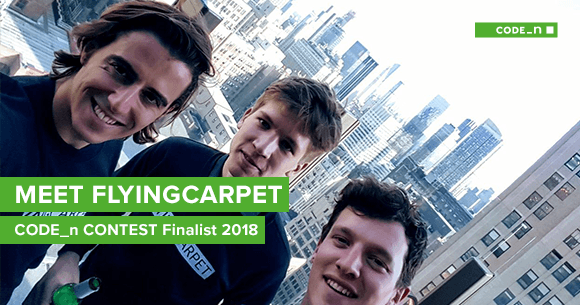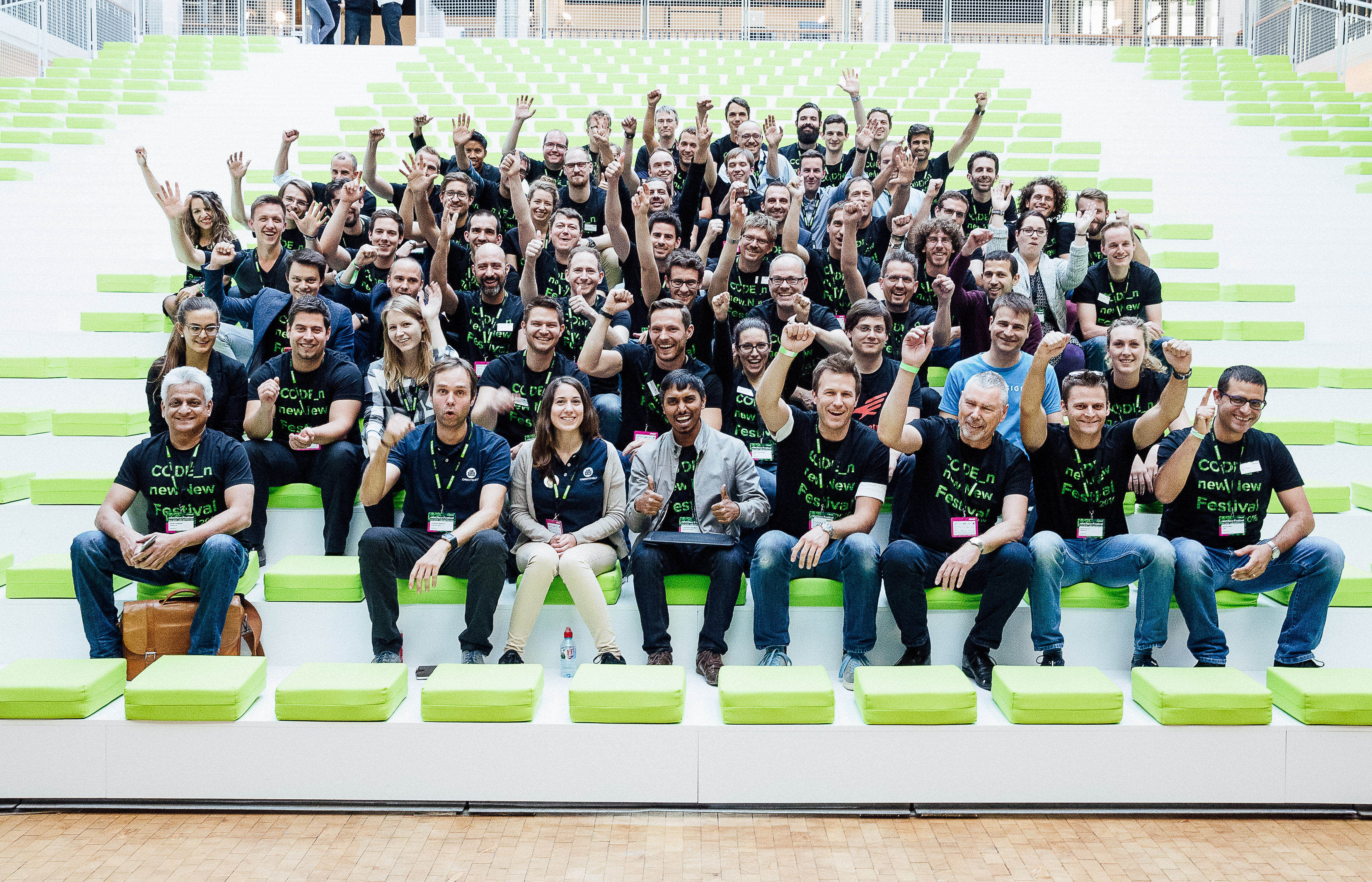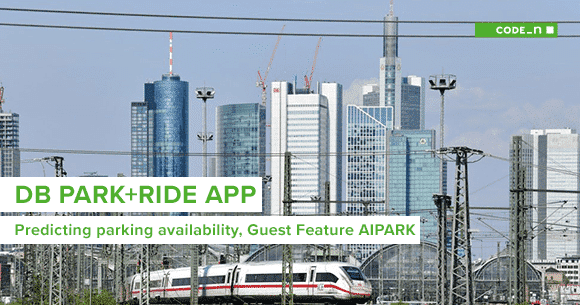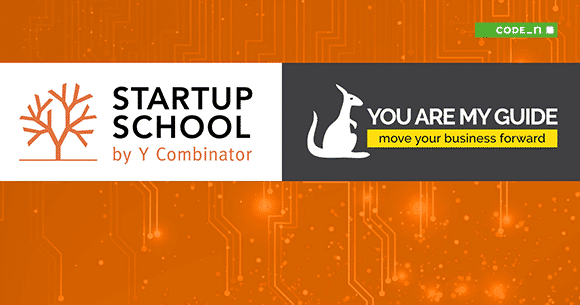MEET OUR CODE_N CONTEST FINALISTS 2018: Flyingcarpet from the United Kingdom

The opportunities offered by disruptive technologies are skyrocketing. Innovations in blockchain technology, artificial intelligence and Internet of Things (IoT) can change the world and bring real value to our society. The London-based tech startup Flyingcarpet is determined to unlock the full potential of drones by developing a decentralized IoT global network of landing and charging stations for all types of drones. Their powerful technology is already improving the lives of people in developing countries and is meant to be accessible to all. We spoke to CEO Julien Bouteloup to find out more about Flyingcarpet’s groundbreaking technology.
Iulia: What is Flyingcarpet all about?
Julien: We are building a decentralized service marketplace that powers native data exchange, all operated through a worldwide distributed network of IoT devices. Developers can build services that use raw visual data sources (e.g., CCTV, or drone footage) to generate clean, real-time data analytics for businesses. On the supply side, we are observing developers creating algorithms that enable drones to carry out tasks such as estimating the number of coconuts on a plantation or inspecting electricity pylons along 10 miles of power lines. These services can run through our virtual AI engine, which validates task proficiency and safety. After a human validation phase, services are pushed into the service marketplace. This validation process ensures that services are only of the highest quality. As services carry out tasks, data is fed into a secondary data exchange, opening up the market to all sorts of external commercial opportunities. For example, crop yield estimates from coconut farmers can be sold via data exchange to futures traders on Wall Street. Their job is to forecast coconut volumes and potentially this could earn more for farmers than their entire crop.
Iulia: How did you come up with the idea?
Julien: During my university years back in 2009, I took on the task of building an autonomous robotics system. I built a system that enabled robots to autonomously gather photos around the campus. My system learned as it went, selling photos to other people and then returning to the charging station so it could recharge and continue operation. It learned how to survive. This concept stuck with me. When blockchain innovations came along with the IoT and AI in a position to add real value to society, in 2017 I built a landing and charging station for drones. These stations not only allowed drones to operate autonomously, but also enabled them to do so over extended periods of time. Rich analytics and insights could then be extracted from the extensive data they provided, delivering significant value to enterprises. Flyingcarpet was born.
Iulia: What are you trying to solve?
Julien: The worldwide revenue for big data and business analytics was $130.1 billion in 2016. However, companies currently analyze a mere 0.5% of all data collected. Yet, reports suggest that by 2020, 33% of the world’s data will be useful if analyzed. This disparity between data collected and demand for data represents an incredibly valuable opportunity. At the same time, there were more than 8.4 billion connected Internet of Things (IoT) devices in use in 2017. Collectively these devices generate an enormous amount of valuable data. By the end of 2019, IoT devices will generate more than 500 zettabytes of data per year. However, there are two obstacles that will need to be overcome for IoT devices to realize the true financial value of their data. First, individual IoT devices lack the artificial intelligence (AI) and pattern recognition software to safely and autonomously carry out tasks and extract rich data from their environment. Second, these devices lack connectivity to a universal data marketplace where analytics can be bought and sold freely, without a middleman collecting fees or imposing regulation. A network for IoT devices equipped with advanced AI data extraction algorithms and a built-in data marketplace would be suitable for radically disrupting the global data and IoT markets. We believe Flyingcarpet has the potential to open the door for a variety of people to seek, obtain, exploit, and derive value from a diverse range of sources – and in doing so benefit society as a whole.
Iulia: Your technology can improve the lives of people in emerging communities all around the world. Where have you already tested it and how did it contribute to helping people in developing countries?
Julien: We successfully completed a Proof of Concept (PoC) in Papua New Guinea, where we built an algorithm that enabled a drone to autonomously count the number of coconuts in a plantation. The aim was to improve accuracy and reduce the cost of forecasting crop yields for the farmer, who can also benefit by selling data to a variety of users through a secondary data exchange. There is a growing need in developing nations to improve agricultural wages from non-farming income streams, and by continuing this work we believe we are promoting this vital cause.
Combined with a minimum viable product (MVP) built in London, our PoC helped us move forward by highlighting the areas of development to focus on. Since this phase, we have built a business dashboard that can now give coconut farmers full control over which jobs are executed. They also have easy access to results after completion. Additionally, we have raised our profile among other partners, who we plan to complete more trials with later this year. Example initiatives in the pipeline are a project aimed at identifying and tracking elephant poachers in Kenya, an arctic researcher who is using drones to combat global warming, and a large-scale infrastructure provider.
Iulia: Thanks a lot for the interview, Julien!
Meet Flyingcarpet at the new.New Festival 2018 this fall, in Stuttgart!






Write a comment